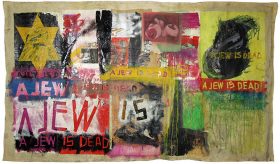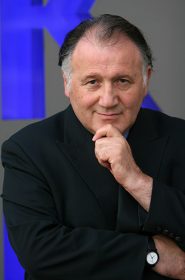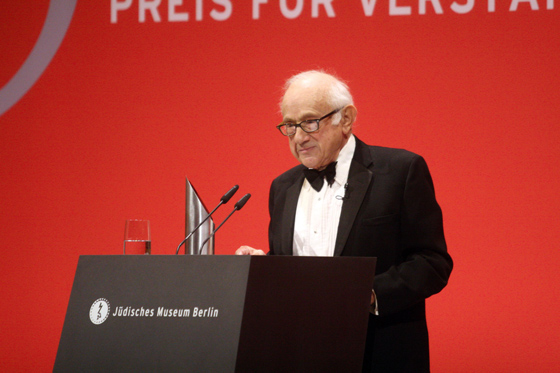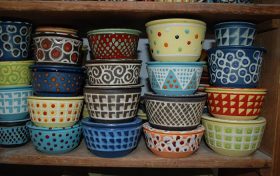A Conversation with Peter Weibel about whether Boris Lurie Should Be Seen as a Part of the Ultra-realist Neo-avant-garde, and Pornography as a Metaphor for Capitalist Society

Boris Lurie, “A Jew is dead,” 1964; Boris Lurie Art Foundation, New York, USA
Mirjam Bitter, blog editor: As part of the program accompanying our Boris Lurie retrospective, you’ll be giving a lecture at the Jewish Museum Berlin on 30 May 2016 on the subject of “The Holocaust and the Problem of Visual Representation,” (further details of which can be found in our events calendar). Is this tied up with the idea that the Holocaust is a major theme in Lurie’s work?

Peter Weibel
© ONUK
Peter Weibel: The Holocaust, along with war, Hiroshima, and Nagasaki were pivotal traumatic experiences for the post-Second World War neo-avant-garde. Take, for example, Yves Klein’s painting “Hiroshima” (1961) or Joseph Beuy’s environment “Show Your Wound” (1974–1975). Many artists responded to the inhumanity they had witnessed by calling into question humanity and indeed, civilization itself: Why, they asked, had literature, painting, music, and philosophy been unable to prevent this twentieth-century barbarism? → continue reading
2 February, 1926 – 18 May, 2016

Fritz Stern
Fritz Stern, born in 1926 in Breslau, passed away on 18 May 2016 in the United States.
The Jewish Museum Berlin mourns the loss of one of its winners of the Prize for Understanding and Tolerance and a member of the Advisory Board for the permanent exhibition.
Jewish Museum Berlin
The whole team
Friends of the Jewish Museum Berlin visit Rachel Kohn

Rachel’s ceramic Tupperware; photo: Rachel Kohn
In advance of Rachel Kohn’s work entering our art vending machine, the Friends of the Jewish Museum Berlin had the foresight to pay the artist a visit at her atelier in Berlin Charlottenburg. It’s the fourth installment of the art vending machine, for which Kohn has created miniature chairs and houses we could already marvel at during the visit.
Stepping into the atelier in this cozy home, we’re greeted by colorful dishes and fantastical judaica. Small houses and chairs made of clay are displayed on the walls in rows, and sculptures sit majestically atop their white pedestals. The air fills with the aromatic warmth of fresh coffee and tea poured into handmade cups. It’s an inviting welcome. → continue reading



